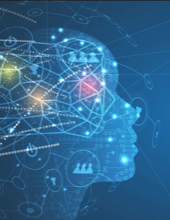Trending Research
Jan 2026
Global and Local Piecewise Fuzzy Control: A Design for Semilinear Time-Fractional Parabolic PDE Systems
This article studies a global and local piecewise fuzzy control for semilinear time-fractional parabolic partial differential equation (PDE) systems. First, the Takagi–Sugeno (T-S) fuzzy model is used to characterize a semilinear time-fractional parabolic PDE system. Then, on the basis of the T-S fuzzy model, a fuzzy controller is designed to make the resulting closed-loop semilinear time-fractional parabolic PDE system Mittag–Leffler stable. Meanwhile, the existence condition of the stabilizing fuzzy controller is given in the form of a linear matrix inequality (LMI). Finally, the effectiveness of the proposed scheme is verified by experiment simulation.
Read more at the IEEE SMC Magazine.
December 2025
Humanoid Robotics: From Engineering to Daily Partners
This article presents a perspective on the current state and possible future directions of humanoid robotics, with particular emphasis on the gap between recent engineering advances and the realization of humanoid robots as reliable daily partners for humans. Although rapid progress has been achieved in locomotion, manipulation, and artificial intelligence, most humanoid systems remain primarily optimized for performancedriven demonstrations and staged showcases, with limited sustained integration into everyday human environments. We argue that closing this gap requires a fundamental shift from motion-centric engineering toward embodied, perceptive, and human-centered system design. Key enabling directions include integrated mechatronic and sensing architectures, multimodal perception and interaction, emotion recognition and affect-aware behavior, safety mechanisms for close human–robot coexistence, and large language model (LLM)–driven robotic intelligence and autonomous learning under practical constraints. Rather than providing a comprehensive technical review, this article highlights current limitations, synthesizes emerging research trends, and outlines a vision in which humanoid robots are engineered not merely to demonstrate technical capability, but to earn trust, adapt to human needs, and function as dependable partners in daily life.
Upcoming Events
2026 IEEE International Conference on Human-Machine Systems
IEEE International Conference on Systems, Man, and Cybernetics
Latest Publications
Article of the Month
- 2026 New Technical Committee and Subcommittee Members
Name Sub-Committees — IEEE SMC HMS /Systems Science And Engineering /Cybernetics TCs Junyu Xuan Technical Committee on Machine Learning Oddy Virgantara Putra Technical Committee on Intelligent Systems to Human-Aware Sustainability Shuyue Bruce Jia Technical Committee on Embodied AI Systems Angsuman Sarkar Technical Committee on Flexible Electronic Systems Xiaopeng Guo Technical Committee on Cognitive Computing Panagiotis...
eNewsletter
- eNewsletter of the IEEE SMC Society, Issue 87, December 2025
Summary of the Latest Issue of the eNewsletter of the IEEE SMC Society, Issue 87, December 2025 Editorial Welcome from the EiC Featured Article Humanoid Robotics: From Engineering to Daily Partners by Samer AlFayad, Maya Sleiman, Feilong Wang and Hang Su Academic Corner Meet SMC Member Prof. Huadong Mo Meet SMC Member Prof. Shichun Yang...
Read More > - eNewsletter of the IEEE SMC Society, Issue 86, September 2025
Summary of the Latest Issue of the eNewsletter of the IEEE SMC Society, Issue 86, September 2025 Editorial Welcome from the EiC Featured Article The Rise of the RoboChemist by Jihong Zhu and colleagues Academic Corner Meet SMC Member Marta Lagomarsino Meet SMC Member Giuseppe D’Aniello Meet SMC Member Edmar Gurjão Industry Corner Interview with...
Read More > - eNewsletter of the IEEE SMC Society, Issue 85, June 2025
Summary of the Latest Issue of the eNewsletter of the IEEE SMC Society, Issue 85, June 2025 Editorial Welcome from the EiC Featured Article Multi-Agent Systems Meet Large Language Models: Architectures, Synergies, and Future Directions by Qimeng Li, Raffaele Gravina, Giancarlo Fortino Academic Corner Meet SMC Member Yaoping Hu Meet SMC Member Antonio Guerrieri Industry...
Read More >







